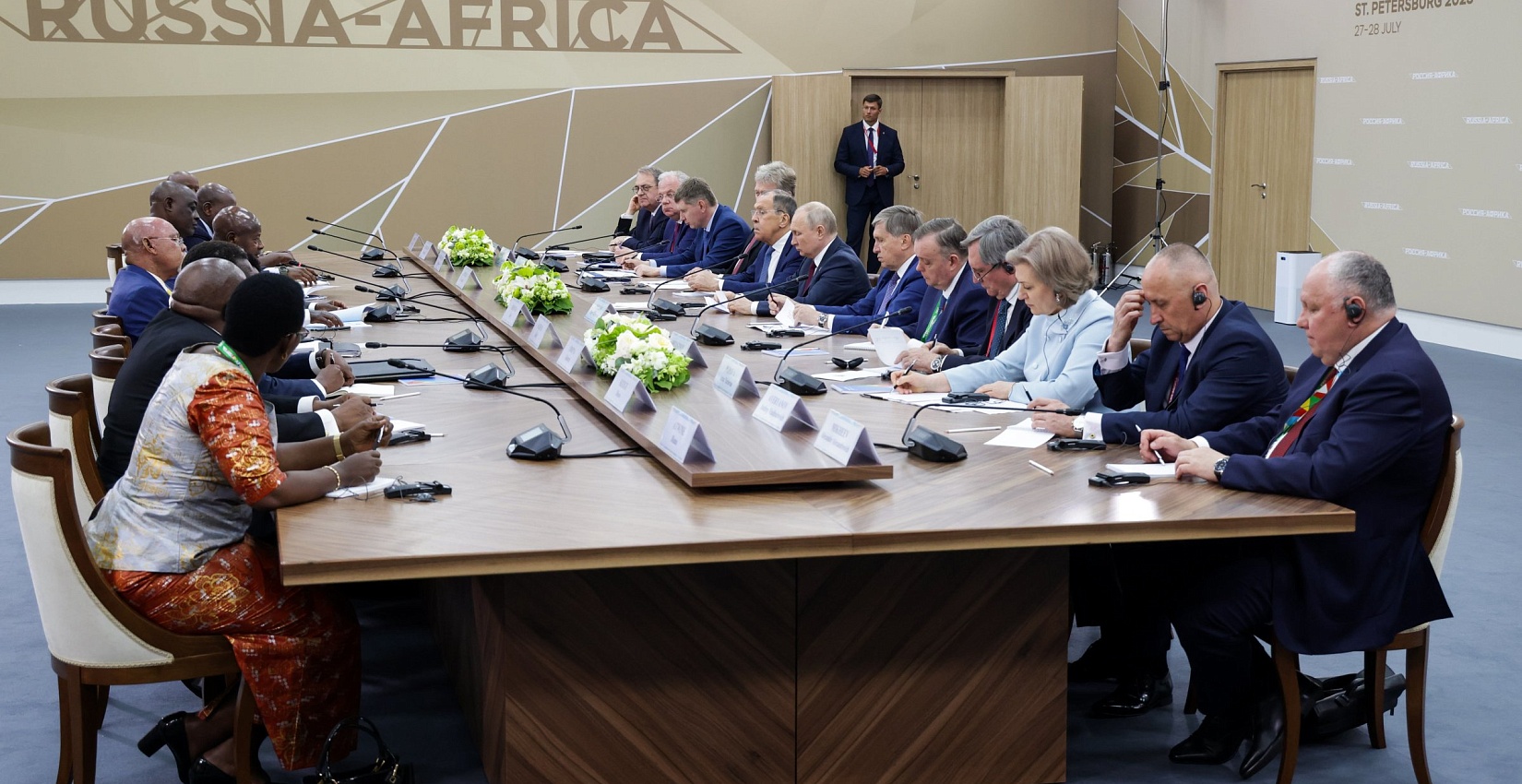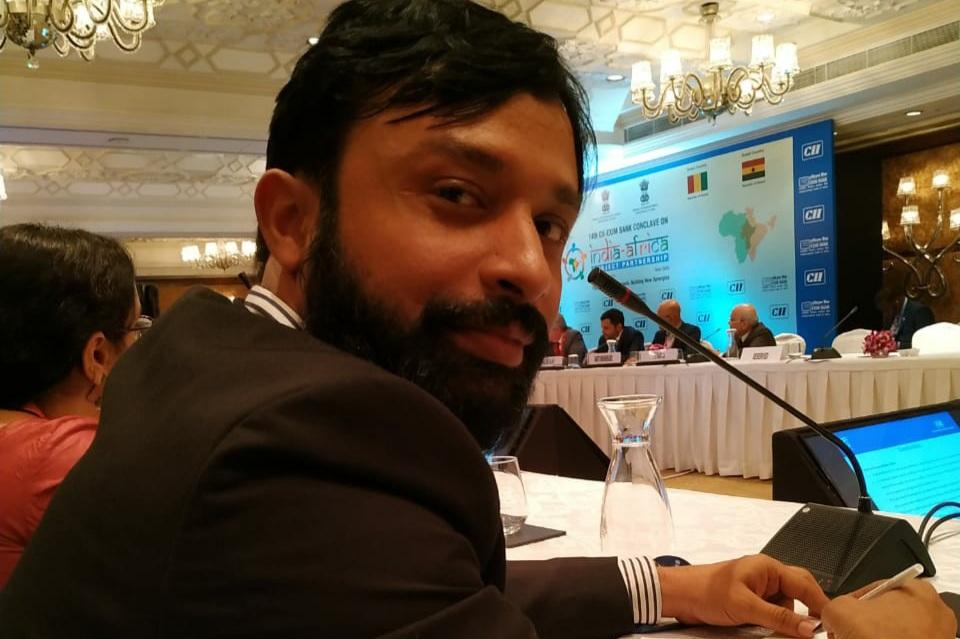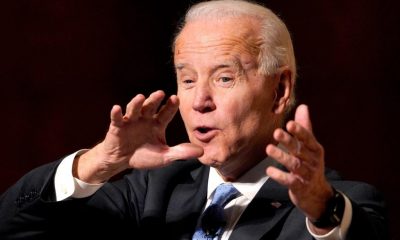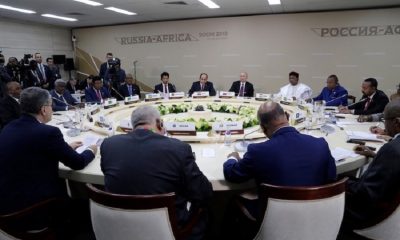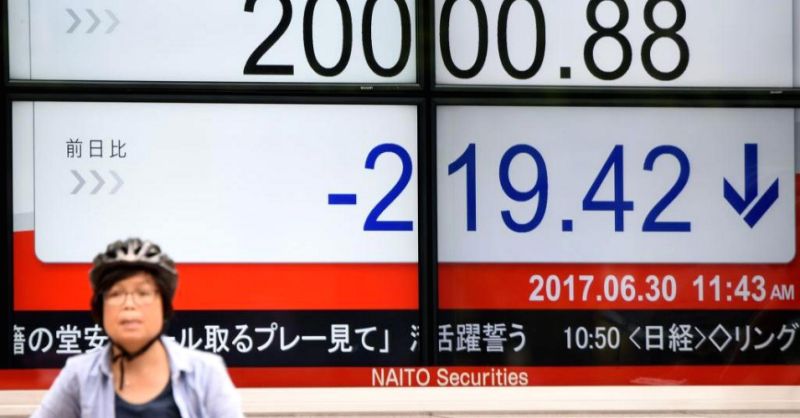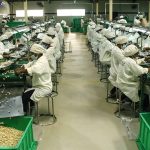World
Gearing Up for mid-December White House’s African Leaders Summit
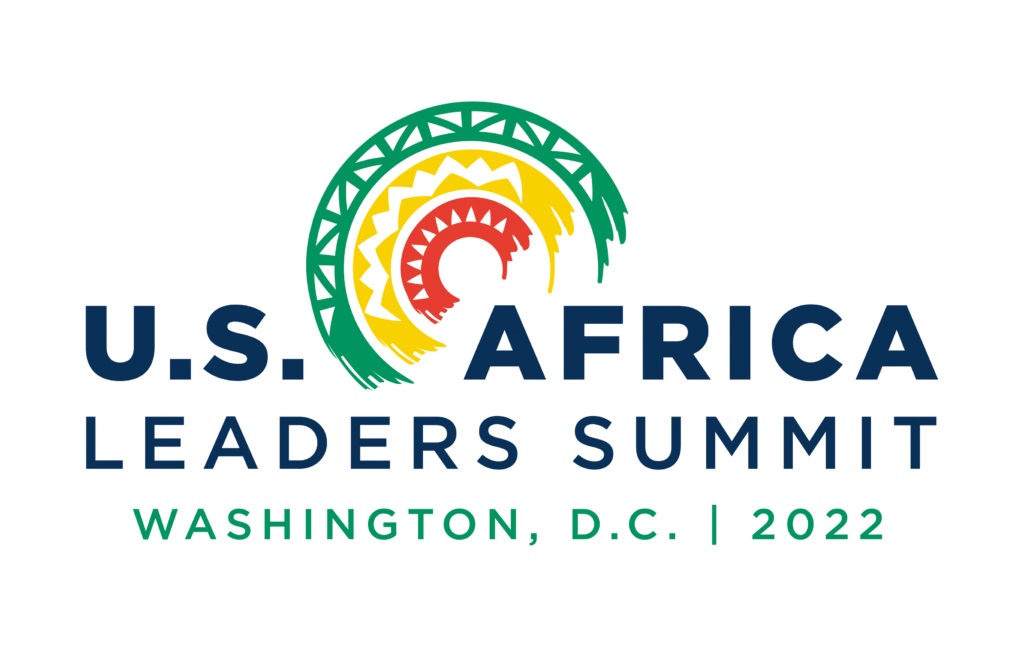
By Kestér Kenn Klomegâh
As the White House gears up for the mid-December African Leaders Summit, several reports indicated that a few African countries might not attend. U.S. President Joe Biden plans to hold an African leaders’ gathering in Washington as a further major step to strengthen geopolitical dialogue and multifaceted relations between the United States and Africa.
The White House National Security Council in November told Today News Africa the criteria for inviting African governments to attend the U.S.-Africa Leaders Summit scheduled for December 13-15. While the primary goal is to host a broadly inclusive gathering of high-powered delegations from across the African continent, a number of African countries were blacklisted.
In a statement, four countries were not invited because they were suspended by the African Union (AU) following military coups and counter-coups. Currently, four countries – Burkina Faso, Guinea, Sudan, and Mali – are suspended by the AU and were not invited. All four countries not invited are currently run by strong men who took political power with guns. The United States recognizes most African nations, except a few like Western Sahara.
According to reports monitored by this author, the U.S.-African summit will discuss the emerging global order and changing geopolitical and economic issues and will also offer enormous funds for various development projects as well as for good governance and human rights. Under the plan, Washington says the summit will focus on existing challenges, especially those relating to peace and security, food security to climate change and poverty alleviation directions across Africa.
The high-level dialogue is expected to set the scene for reviewing the opportunities for the United States and corporate leaders from various African public and private sectors and review thoroughly how to strengthen the economic partnership between the United States and Africa.
That U.S.-Africa summit “will demonstrate the United States enduring commitment to Africa and will underscore the importance of U.S.-Africa relations and increased cooperation on shared global priorities. Africa will shape the future – not just the future of the African people, but of the world. Africa will make the difference in tackling the most urgent challenges and seizing the opportunities we all face,” according to a statement from Biden Administration.
Washington considers the United States’ collaboration with leaders from African governments, civil society, the private sector, and the African diaspora would help tackle some of the existing and future challenges, especially in efforts to offer billions of dollars for various development projects, including building badly needed infrastructure and support energy security for the population.
In terms of broadening trade and economic cooperation, according to our monitoring sources, African leaders would be required to bring huge delegations for special sessions during the mid-December summit. Together with their potential American investors would examine ways for exploring and leveraging the African Continental Free Trade Area (AfCFTA).
The AfCFTA aims to create a single market with an estimated population of 1.3 billion population and ultimately requires all kinds of business services and consumable products. Quite challenging, though, but there are new legislations that stipulate localizing production and distribution inside Africa.
The United States government and private sector leaders, together with African political and corporate business leaders, have been consistently working over these years to share insights on critical issues and policies influencing the US-Africa economic partnership.
The U.S. Agency for International Development would be working closely with African institutions and organizations; it would be working closely on the participation of Africans. During these past months, USAID has provided approximately $1.3 billion in aid to the Horn of Africa. Ethiopia, Kenya and Somalia are listed as beneficiaries to help stave off mass starvation and deaths in the drought-stricken region of Africa.
Further to that, Dana Banks, White House Senior Director for Africa, said the White House administration has been pushing for the Prosper Africa Build Together Campaign that would drive billions of dollars of investment in Africa. Summit details will soon be announced further detailed information, according to Washington and the Corporate Council on Africa (CCA).
In August, on her African trip, U.S. Ambassador to the United Nations Linda Thomas-Greenfield said the long-planned trip is not part of global competition with either of America’s rivals, but it is part of a series of high-level U.S. engagements “that aim to affirm and strengthen our partnerships and relationships with African leaders and people.”
Her trip from Aug. 4-7 was followed immediately by U.S. Secretary of State Antony Blinken’s visits to South Africa, Congo and Rwanda from Aug. 7-11. “We’re not catching up. They are catching up,” Thomas-Greenfield said. “We have been engaging with this continent for decades, and even my own career is very much evidence of that.”
Thomas-Greenfield first went to Africa as a student in the 1970s, and in her career as a U.S. diplomat, she rose to be Assistant Secretary of State for African Affairs from 2013 to 2017. Many American corporate business leaders have visited and invested significantly in various sectors in Africa.
The Bill & Melinda Gates Foundation has made a resonating announcement that the foundation will spend $7 billion over the next four years to improve health, gender equality and agriculture across Africa. Strengthening and supporting these sectors have become necessary due to increasing complaints about lack of funds and, worse, due to the negative impact of geopolitical changes.
It will further continue to invest in researchers, entrepreneurs, innovators and healthcare workers who are working to unlock the tremendous human potential that exists across the continent, according to the statement, noting that the Russia-Ukraine crisis was reducing the amount of aid flowing to the continent and created global instability. It appeals to global leaders to step up their commitment to finding solutions to multiple problems in African countries.
Noteworthy to reiterate here that President Biden has held several summits since his inauguration in January 2021. For instance, on December 9-10, 2021, President Biden held the first of two Summits for Democracy, which brought together leaders from government, civil society, and the private sector in a shared effort to set forth “an affirmative agenda for democratic renewal and to tackle the greatest threats faced by democracies today through collective action.”
Now the U.S.-Africa Leaders Summit comes just a few months after Secretary of State Antony J. Blinken unveiled the new U.S. policy for Africa in South Africa in August. The new policy says that the United States will pursue four main objectives in Africa. The four objectives of the new strategy are fostering openness and open societies, delivering democratic and security dividends, advancing pandemic recovery and economic opportunities, and supporting conservation, climate adaptation and a just energy transition.
The new strategy begins by acknowledging that “Sub-Saharan Africa plays a critical role in advancing global priorities to the benefit of Africans and Americans” and that it “has one of the world’s fastest-growing populations, largest free trade areas, most diverse ecosystems, and one of the largest regional voting groups in the United Nations (UN).”
To realize its ‘openness and open societies’ objective, the U.S. will promote government transparency and accountability, increase the U.S. focus on the rule of law, justice, and dignity, and assist African countries to more transparently leverage their natural resources for sustainable development.
For democracy and security dividends, the United States will focus on “working with allies and regional partners to stem the recent tide of authoritarianism and military takeovers, backing civil society, empowering marginalized groups, centring the voices of women and youth, and defending free and fair elections, improving the capacity of African partners to advance regional stability and security and reducing the threat from terrorist groups to the United States Homeland, persons, and diplomatic and military facilities.”
The mid-December Summit has already gained wide popularity among African leaders and, for the second time, will be the biggest U.S.-Africa gathering in Washington since former President Barack Obama hosted African leaders in 2014.
In addition, Obama also started the Young African Leaders Initiative (YALI), which brings every year a group of young Africans to the White House. Until today, YALI continues to run various educational and training programmes, including seminars for Africans. The Times Higher Education index indicated that approximately 43,000 Africans have currently enrolled on and are studying in American universities.
Angolan President, João Lourenço, in an interview with Hariana Veras, White House correspondent, praised President Joseph R. Biden Jr. for hosting the U.S.-Africa Leaders’ Summit, saying that it will help create a win-win partnership between the United States and Africa, accelerating industrialization, increase direct foreign investment and further cement the already good collaboration between Angola and the United States.
According to that report, he pointed to the assertiveness of the Biden administration’s focus on trade and investment in Africa, highlighted America’s commitment to Africa’s security, its democratic development, and its people, as well as emphasize the depth and breadth of the United States commitment to the African continent.
The Angolan leader advised that the Russian and Ukraine war should open the eyes of advanced countries to lead efforts in increasing investment in more alternative energy sources besides the traditionally used energy sources. As the Russia-Ukraine war rages in Europe and its ramifications are extended to other parts of the world, including in Africa, Lourenço called for increased food production and investment in African nations, saying that the global food crisis has badly affected Africa.
Despite some negative criticisms, African leaders continue sourcing different kinds of economic assistance and support provided by the United States. The African leaders are mostly western-oriented, admire its never-failing practical soft-power play, and, in turn, maintain long-term geopolitical interest with the West. The United States has political, economic and cultural ties with independent African countries.
World
Today’s Generation of Entrepreneurs Value Flexibility, Autonomy—McNeal-Weary

By Kestér Kenn Klomegâh
The Young African Leaders Initiative (YALI) is the United States’ signature step to invest in the next generation of African leaders. Since its establishment in 2010 by Obama administration, YALI has offered diverse opportunities, including academic training in leadership, governance skills, organizational development and entrepreneurship, and has connected with thousands of young leaders across Africa. This United States’ policy collaboration benefits both America and Africa by creating stronger partnerships, enhancing mutual prosperity, and ensuring a more stable environment.
In our conversation, Tonya McNeal-Weary, Managing Director at IBS Global Consulting, Inc., Global Headquarters in Detroit, Michigan, has endeavored to discuss, thoroughly, today’s generation of entrepreneurs and also building partnerships as a foundation for driving positive change and innovation in the global marketplace. Here are the excerpts of her conversation:
How would you describe today’s generation of entrepreneurs?
I would describe today’s generation of entrepreneurs as having a digital-first mindset and a fundamental belief that business success and social impact can coexist. Unlike the entrepreneurs before them, they’ve grown up with the internet as a given, enabling them to build global businesses from their laptops and think beyond geographic constraints from day one. They value flexibility and autonomy, often rejecting traditional corporate ladders in favor of building something meaningful on their own terms, even if it means embracing uncertainty and financial risk that previous generations might have avoided.
And those representing the Young African Leaders Initiative, who attended your webinar presentation late January 2026?
The entrepreneurs representing the Young African Leaders Initiative are redefining entrepreneurship on the continent by leveraging their unique perspectives, cultural heritage, and experiences. Their ability to innovate within local contexts while connecting to global opportunities exemplifies how the new wave of entrepreneurs is not confined by geography or conventional expectations.
What were the main issues that formed your ‘lecture’ with them, Young African Leaders Initiative?
The main issues that formed my lecture for the Young African Leaders Initiative were driven by understanding the importance of building successful partnerships when expanding into the United States or any foreign market. During my lecture, I emphasized that forming strategic alliances can help entrepreneurs navigate unfamiliar business environments, access new resources, and foster long-term growth. By understanding how to establish strong and effective partnerships, emerging leaders can position their businesses for sustainable success in global markets. I also discussed the critical factors that contribute to successful partnerships, such as establishing clear communication channels, aligning on shared goals, and cultivating trust between all parties involved. Entrepreneurs must be proactive in seeking out partners who complement their strengths and fill gaps in expertise or resources. It is equally important to conduct thorough due diligence to ensure that potential collaborators share similar values and ethical standards. Ultimately, the seminar aimed to empower YALI entrepreneurs with practical insights and actionable strategies for forging meaningful connections across borders. Building successful partnerships is not only a pathway to business growth but also a foundation for driving positive change and innovation in the global marketplace.
What makes a ‘leader’ today, particularly, in the context of the emerging global business architecture?
In my opinion, a leader in today’s emerging global business architecture must navigate complexity and ambiguity with a fundamentally different skill set than what was previously required. Where traditional leadership emphasized command-and-control and singular vision, contemporary leaders succeed through adaptive thinking and collaborative influence across decentralized networks. Furthermore, emotional intelligence has evolved from a soft skill to a strategic imperative. Today, the effective modern leader must possess deep cross-cultural intelligence, understanding that global business is no longer about exporting one model worldwide but about genuinely integrating diverse perspectives and adapting to local contexts while maintaining coherent values.
Does multinational culture play in its (leadership) formation?
I believe multinational culture plays a profound and arguably essential role in forming the kind of leadership required in today’s global business environment. Leaders who have lived, worked, or deeply engaged across multiple cultural contexts develop a cognitive flexibility that’s difficult to replicate through reading or training alone. More importantly, multinational exposure tends to dismantle the unconscious certainty that one’s own way of doing things is inherently “normal” or “best.” Leaders shaped in multicultural environments often develop a productive discomfort with absolutes; they become more adept at asking questions, seeking input, and recognizing blind spots. This humility and curiosity become strategic assets when building global teams, entering new markets, or navigating geopolitical complexity. However, it’s worth noting that multinational experience alone doesn’t automatically create great leaders. What matters is the depth and quality of cross-cultural engagement, not just the passport stamps. The formation of global leadership is less about where someone has been and more about whether they’ve developed the capacity to see beyond their own cultural lens and genuinely value differences as a source of insight rather than merely tolerating them as an obstacle to overcome.
In the context of heightening geopolitical situation, and with Africa, what would you say, in terms of, people-to-people interaction?
People-to-people interaction is critically important in the African business context, particularly as geopolitical competition intensifies on the continent. In this crowded and often transactional landscape, the depth and authenticity of human relationships can determine whether a business venture succeeds or fails. I spoke on this during my presentation. When business leaders take the time for face-to-face meetings, invest in understanding local priorities rather than imposing external agendas, and build relationships beyond the immediate transaction, they signal a different kind of partnership. The heightened geopolitical situation actually makes this human dimension more vital, not less. As competition increases and narratives clash about whose model of development is best, the businesses and nations that succeed in Africa will likely be those that invest in relationships characterized by reciprocity, respect, and long-term commitment rather than those pursuing quick wins.
How important is it for creating public perception and approach to today’s business?
Interaction between individuals is crucial for shaping public perception, as it influences views in ways that formal communications cannot. We live in a society where word-of-mouth, community networks, and social trust areincredibly important. As a result, a business leader’s behavior in personal interactions, their respect for local customs, their willingness to listen, and their follow-through on commitments have a far-reaching impact that extends well beyond the immediate meeting. The geopolitical dimension amplifies this importance because African nations now have choices. They’re no longer dependent on any single partner and can compare approaches to business.
From the above discussions, how would you describe global business in relation to Africa? Is it directed at creating diverse import dependency?
While it would be too simplistic to say global business is uniformly directed at creating import dependency, the structural patterns that have emerged often produce exactly that outcome, whether by design or as a consequence of how global capital seeks returns. Global financial institutions and trade agreements have historically encouraged African nations to focus on their “comparative advantages” in primary commodities rather than industrial development. The critical question is whether global business can engage with Africa in ways that build productive capacity, transfer technology, develop local talent, and enable countries to manufacture for themselves and for export—or whether the economic incentives and power irregularities make this structurally unlikely without deliberate policy intervention.
World
Russia Expands Military-Technical Cooperation With African Partners

By Kestér Kenn Klomegâh
Despite geopolitical complexities, tensions and pressure, Russia’s military arms and weaponry sales earned approximately $15 billion at the closure of 2025, according to Kremlin report. At the regular session, chaired by Russian President Vladimir Putin on Jan. 30, the Commission on Military and Technical Cooperation with Foreign Countries analyzed the results of its work for 2025, and defined plans for the future.
It was noted that the system of military-technical cooperation continued to operate in difficult conditions, and with increased pressure from the Western countries to block business relations with Russia. The meeting, however, admitted that export contracts have generally performed sustainably. Russian military products were exported to more than 30 countries last year, and the amount of foreign exchange exceeded $15 billion.
Such results provide an additional opportunity to direct funds to the modernization of OPC enterprises, to the expansion of their production capacities, and to advanced research. It is also important that at these enterprises a significant volume of products is civilian products.
The Russian system of military-technical cooperation has not only demonstrated effectiveness and high resilience, but has created fundamental structures, which allow to significantly expand the “geography” of supplies of products of military purpose and, thus strengthen the position of Russia’s leader and employer advanced weapons systems – proven, tested in real combat conditions.
Thanks to the employees of the Federal Service for Military Technical Cooperation and Rosoboronexport, the staff of OPC enterprises for their good faith. Within the framework of the new federal project “Development of military-technical cooperation of Russia with foreign countries” for the period 2026-2028, additional measures of support are introduced. Further effective use of existing financial and other support mechanisms and instruments is extremely important because the volumes of military exports in accordance with the 2026 plan.
Special attention would be paid to the expansion of military-technological cooperation and partnerships, with 14 states already implementing or in development more than 340 such projects.
Future plans will allow to improve the characteristics of existing weapons and equipment and to develop new promising models, including those in demand on global markets, among other issues – the development of strategic areas of military-technical cooperation, and above all, with partners on the CIS and the CSTO. This is one of the priority tasks to strengthen both bilateral and multilateral relations, ensuring stability and security in Eurasia.
From January 2026, Russia chairs the CSTO, and this requires working systematically with partners, including comprehensive approaches to expanding military-technical relations. New prospects open up for deepening military-technical cooperation and with countries in other regions, including with states on the African continent. Russia has been historically strong and trusting relationships with African countries. In different years even the USSR, and then Russia supplied African countries with a significant amount of weapons and military equipment, trained specialists on their production, operation, repair, as well as military personnel.
Today, despite pressure from the West, African partners express readiness to expand relations with Russia in the military and military-technical fields. It is not only about increasing supplies of Russian military exports, but also about the purchase of other weapons, other materials and products. Russia has undertaken comprehensive maintenance of previously delivered equipment, organization of licensed production of Russian military products and some other important issues. In general, African countries are sufficient for consideration today.
World
Trump Picks Kevin Warsh to Succeed Jerome Powell as Federal Reserve Chair
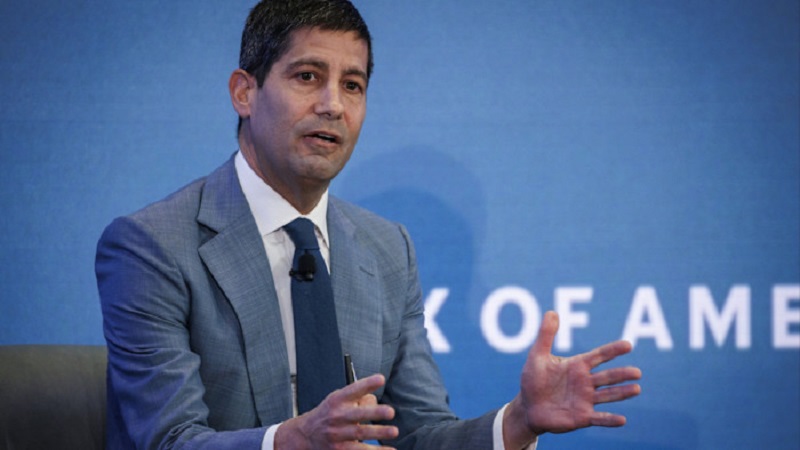
By Adedapo Adesanya
President Donald Trump has named Mr Kevin Warsh as the successor to Mr Jerome Powell as the Federal Reserve chair, ending a prolonged odyssey that has seen unprecedented turmoil around the central bank.
The decision culminates a process that officially began last summer but started much earlier than that, with President Trump launching a criticism against the Powell-led US central bank almost since he took the job in 2018.
“I have known Kevin for a long period of time, and have no doubt that he will go down as one of the GREAT Fed Chairmen, maybe the best,” Mr Trump said in a Truth Social post announcing the selection.
US analysts noted that the 55-year old appear not to ripple market because of his previous experience at the apex bank as Governor, with others saying he wouldn’t always do the bidding of the American president.
If approved by the US Senate, Mr Warsh will take over the position in May, when Mr Powell’s term expires.
Despite having argued for reductions recently, “Warsh has a long hawkish history that markets have not forgotten,” one analyst told Bloomberg.
President Trump has castigated Mr Powell for not lowering interest rates more quickly. His administration also launched a criminal investigation of Powell and the Federal Reserve earlier this month, which led Mr Powell to issue an extraordinary rebuke of President Trump’s efforts to politicize the independent central bank.
-

 Feature/OPED6 years ago
Feature/OPED6 years agoDavos was Different this year
-
Travel/Tourism9 years ago
Lagos Seals Western Lodge Hotel In Ikorodu
-

 Showbiz3 years ago
Showbiz3 years agoEstranged Lover Releases Videos of Empress Njamah Bathing
-

 Banking8 years ago
Banking8 years agoSort Codes of GTBank Branches in Nigeria
-

 Economy3 years ago
Economy3 years agoSubsidy Removal: CNG at N130 Per Litre Cheaper Than Petrol—IPMAN
-

 Banking3 years ago
Banking3 years agoSort Codes of UBA Branches in Nigeria
-

 Banking3 years ago
Banking3 years agoFirst Bank Announces Planned Downtime
-

 Sports3 years ago
Sports3 years agoHighest Paid Nigerian Footballer – How Much Do Nigerian Footballers Earn


